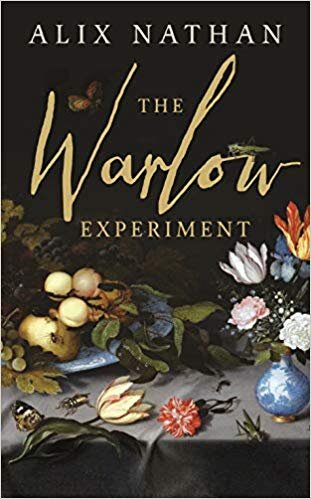Well Read Wednesday: The Warlow Experiment
This is the first of a new series of blog posts in the form of Book reviews. Always a passionate and avid reader I tend to have strong opinions about the many and varied books I read but so far have written very few book reviews. Well read Wednesday will give me the chance to tell you about what I like to read but also give me some much needed experience of writing reviews.
The Warlow Experiment
by Alix Nathan
Having just finished this extraordinary book I believe it will appeal to all who love a great story, well crafted with strong characters, firmly bedded in it's social and historical setting. Herbert Powyss lives on a small estate in the Welsh Marches, with enough time and income to pursue a gentleman's fashionable cultivation of exotic plants and trees. But he longs to make his mark in the field of science - something consequential enough to present to the Royal Society in London.He hits on a radical experiment in isolation: for seven years a subject will inhabit three rooms in the cellar of the manor house, fitted out with books, paintings and even a chamber organ. Meals will arrive thrice daily via a dumbwaiter. The solitude will be totally unrelieved by any social contact; the subject will keep a diary of his daily thoughts and actions. The pay? Fifty pounds per annum, for life.Only one man is desperate enough to apply for the job: John Warlow, a semi-literate labourer with a wife and six children to provide for. The experiment, a classic Enlightenment exercise gone more than a little mad, will have unforeseen consequences for all included. In this seductive tale of self-delusion and obsession, Alix Nathan has created an utterly transporting historical novel which is both elegant and unforgettably sinister.I found the characters to be strong and utterly believable. The author has brilliantly captured the nature of the opposing dynamics of the major characters. The social strictures of the master and servant, the male subjugation of the female characters, the complete absence of empathy and the selfish reach for aggrandisement are all laid out for us.The novel successfully blends fine historical detail with keen psychological observations, especially mental fragility, misogyny, compassion and failed altruism. While set in the age of European enlightenment, with the French Revolution and Tom Paine's The Rights of Man featuring in the background, the story also speaks to us in the present.If you need your stories with a happy ever after ending then this may not be for you, but you are missing out! In fact the ending is as dramatic as anything else in this tale and since it was difficult to put down, the ending came all too soon.
Herbert Powyss lives on a small estate in the Welsh Marches, with enough time and income to pursue a gentleman's fashionable cultivation of exotic plants and trees. But he longs to make his mark in the field of science - something consequential enough to present to the Royal Society in London.He hits on a radical experiment in isolation: for seven years a subject will inhabit three rooms in the cellar of the manor house, fitted out with books, paintings and even a chamber organ. Meals will arrive thrice daily via a dumbwaiter. The solitude will be totally unrelieved by any social contact; the subject will keep a diary of his daily thoughts and actions. The pay? Fifty pounds per annum, for life.Only one man is desperate enough to apply for the job: John Warlow, a semi-literate labourer with a wife and six children to provide for. The experiment, a classic Enlightenment exercise gone more than a little mad, will have unforeseen consequences for all included. In this seductive tale of self-delusion and obsession, Alix Nathan has created an utterly transporting historical novel which is both elegant and unforgettably sinister.I found the characters to be strong and utterly believable. The author has brilliantly captured the nature of the opposing dynamics of the major characters. The social strictures of the master and servant, the male subjugation of the female characters, the complete absence of empathy and the selfish reach for aggrandisement are all laid out for us.The novel successfully blends fine historical detail with keen psychological observations, especially mental fragility, misogyny, compassion and failed altruism. While set in the age of European enlightenment, with the French Revolution and Tom Paine's The Rights of Man featuring in the background, the story also speaks to us in the present.If you need your stories with a happy ever after ending then this may not be for you, but you are missing out! In fact the ending is as dramatic as anything else in this tale and since it was difficult to put down, the ending came all too soon.